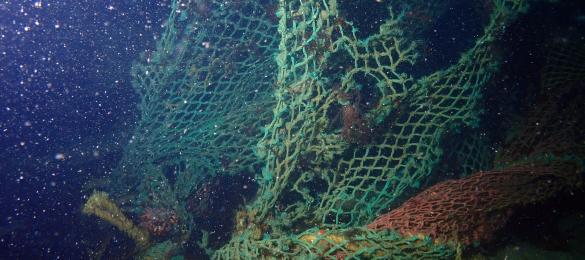I consume responsibly
to protect marine mammals
The ocean is made up of drops of water.
We sometimes feel that our individual initiatives may seem like mere drops of water isolated in an immense ocean, but when added together, they can have a real impact. At their own level, each person can act for the preservation of marine mammals and the marine environment in general by changing a few elements of their daily life and by setting an example for those around them.
I diversify my consumption of fish
Marine mammals are affected by overfishing, leading to the disappearance of their food resources. By diversifying the types of fish on our dinner plate, we contribute to limiting the pressure on a particular species.
I prioritise local fishers
Marine mammal bycatch is mainly caused by offshore fisheries using specific fishing gears, such as pelagic trawl and purse seine. Local fishermen do not use these gears. By eating locally caught fish, I not only participate in the economy of my island, but I also favour fishing techniques that cause less bycatch.
To go further, I can choose particularly pelagic species, such as tuna, offered by my local fisherman. These species are less sensitive to overfishing.
Learn more about the impact of fishing on cetaceans

Fishing
I reduce the amount of waste I produce
Transported by the wind or rivers, the waste produced on land always ends up in the sea where it can injure marine mammals when they ingest it. I can limit the amount of waste I produce by choosing reusable items instead of disposable ones. For example, metal straws instead of plastic ones or reusable dishes for my picnics.
I can also pay special attention to over-packaging. Often, products are packaged individually and put together in a larger package, such as packages of biscuits for example. I can take this a step further by choosing to buy in bulk and store in suitable containers, if possible.
Reusable cloth bags are also a good alternative to disposable bags for fruits and vegetables for example, whether at the market or the supermarket.
I limit the use of plastic materials
Plastic can take hundreds of years to degrade in nature. It turns into micro particles that spread all over the planet, in the air we breathe, in the soil where we grow our food and where animals feed, and in the water where marine mammals and the fish live, which we share with them.
During its slow degradation, plastic will also release chemicals that will contaminate marine mammals and affect their metabolism and reproduction.
For my everyday objects, I can choose materials that require energy for their production and transformation but that will be less polluting during degradation, like glass for example.

